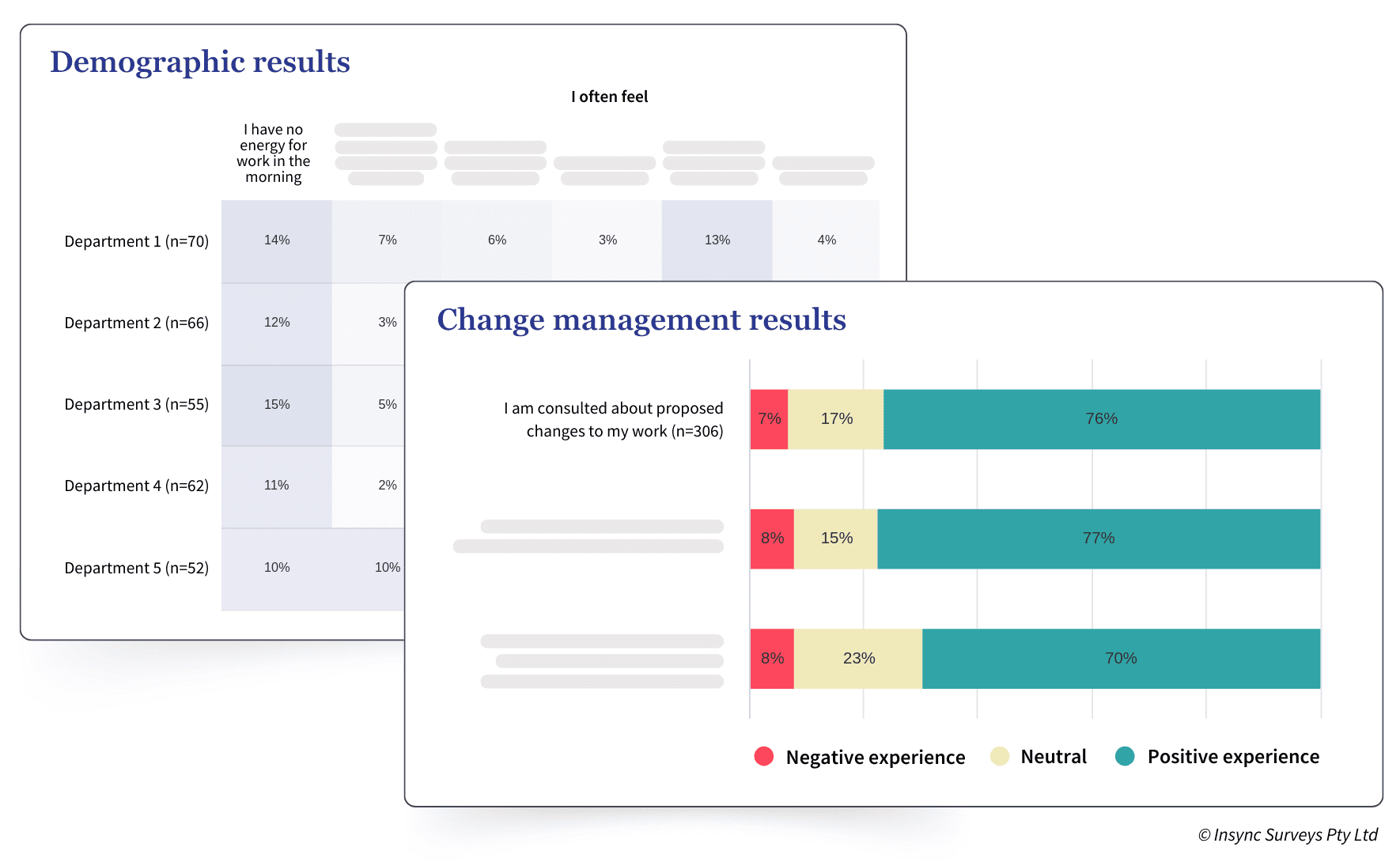Psychosocial hazards in the workplace: expert insights and discussion
Explore workplace psychosocial hazards with experts Dr. Erika Szerda, Michelle Maugueret, and Steve Macchi. Legal insights, leadership roles, and collaboration ...
Benchmarking board performance: 500 board reviews later
Unlock evidence-based insights into board performanceLeverage our tools and expertise to lead your team towards a healthier, more engaged workforce.
Talk to us todayIn the dynamic landscape of today’s workplaces, managing psychosocial hazards is imperative for fostering a healthy and productive environment.
As an employer, it is your responsibility, per the Work Health and Safety (WHS) Act 2011, to reasonably and feasibly ensure the physical and psychological health and safety of your employees.
Previously, the management of psychosocial risks was unregulated. However, many state jurisdictions have recently amended their WHS laws to include precise regulations addressing psychosocial risks and hazards in the workplace. In these jurisdictions, the law mandates organisations to manage and mitigate these risks actively and pre-emptively. Jurisdictions have integrated psychosocial risk assessments into occupational health and safety regulations, emphasising compliance to avoid legal consequences, fines, and reputational damage.
Understanding and responding to these laws is crucial for organisations to maintain a healthy and sustainable workplace.
A key tool in achieving this is the psychosocial assessment – a process that identifies factors impacting employees’ mental health and wellbeing in the workplace – so that employers can evaluate and mitigate risks where necessary.


Psychosocial hazards encompass various elements within the work environment and job design, that have the potential to cause psychological harm to employees.
Some common examples of psychosocial hazards include severe, prolonged, or frequent occurrences of:
Our seasoned consultants, registered psychologists and analysts utilise evidence-based approaches, tools and frameworks to help you mitigate psychosocial hazards.
At the centre of our offering, is our robust, psychometrically valid employee engagement survey. Using our proven employee feedback methodologies and frameworks, our team can facilitate anonymous employee surveys, extract invaluable data and insights, help you champion the project internally and put you on the path to success.
But we know that each survey needs to be unique, just like your business and so we offer the flexibility to customise your survey, incorporating our psychosocial hazards module. This addition allows for an in-depth analysis of how psychologically safe your employees feel.
Our psychosocial assessment can be utilised in conjunction with our employee engagement survey as a deep dive into your workplace.
Alternatively, for a lighter touch, you can deploy the psychosocial assessment on its own as a quick pulse check. Navigating this sensitive area can be challenging, but we’re here to provide support. Our confidential surveys, administered independently, offer a secure and authentic space for your employees to share their experiences. With a dedicated project team wrapped around you, we ensure you feel supported throughout the entire journey.
Take proactive steps towards creating a positive work environment with our psychosocial assessment tool. Identify potential hazards and receive personalised strategies to safeguard your employees’ wellbeing.
Click below to download our psychosocial assessment offering guide.


Principal | Behaviourist | Registered Psychologist
What is a psychosocial disability?
A psychosocial disability impairs mental health functioning. Examples include anxiety and depression.
What are psychosocial hazards?
Psychosocial hazards encompass various elements within the work environment and job design that have the potential to cause psychological harm to employees. These hazards are primarily linked to the social and organisational aspects of work. Identifying and minimising them is essential for creating a safe and supportive work environment. Click here to understand the difference between psychosocial hazards and psychological safety.
What is psychosocial recovery coaching?
Psychosocial recovery coaching aids mental health rehabilitation. Individuals can utilise coaching strategies for positive outcomes in managing psychosocial factors and promoting wellbeing.
What is psychosocial stress?
Psychosocial stress involves emotional and psychological pressure from life’s demands. It impacts mental wellbeing, requiring coping strategies for resilience.
How to prevent psychosocial hazards in the workplace?
Safeguard employee mental health by preventing psychosocial hazards. Adhere to a code of practice, conduct risk assessments, and foster a supportive work environment. Insync’s independently administered survey module can support your organisation to mitigate psychosocial hazards.
How to provide psychosocial support?
Offer psychosocial support through structured assessments and a supportive workplace culture. Prioritise employee wellbeing, utilising available resources and support networks.
Explore workplace psychosocial hazards with experts Dr. Erika Szerda, Michelle Maugueret, and Steve Macchi. Legal insights, leadership roles, and collaboration ...
Uphold legal obligations and proactively mitigate psychosocial risks. Gain valuable insights from our in-house psychologist, fostering a safe environment for your ...
Discover the differences between psychosocial hazards and psychological safety, and why having a balance of both is crucial for employee wellbeing.
Learn how to mitigate psychosocial hazards amidst Australia's mental health challenge. Insync's expert guidance empowers workplaces to foster well-being and resilience.
We use cookies to enhance your experience. Further use is considered consent. You can read more about cookies in our Privacy Policy.


You’ll always get a real person when you contact Insync.
Let's get started